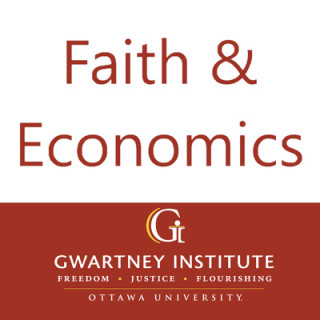

The Gwartney team wants to welcome Chris Coyne to the show this week! This week the team talks to Chris about his book, Manufacturing Militarism. Christopher J. Coyne and Abigail R. Hall detail how military propaganda has targeted Americans since 9/11. From the darkened cinema to the football field to the airport screening line, the U.S. government has purposefully inflated the actual threat of terrorism and the necessity of a proactive military response. Give a listen to what the team has to say about this topic.
Link to the Book: https://www.amazon.com/Manufacturing-Militarism-Government-Propaganda-Terror-dp-1503628361/dp/1503628361/ref=mt_other?_encoding=UTF8&me=&qid=
Timeline:
Voting Booth is Discipline- 4:45
Unknown Consumption- 8:30
Classify Everything!- 14:30
Want Explosives? Pay in Propaganda- 22:00
He Shoots... It's Propaganda- 25:00
War is the Greatest Threat to Liberty- 34:00
Quote of the Cast:
The normalization of military propaganda makes the country comfortable around this militarism because we are surrounded by it constantly- Chris